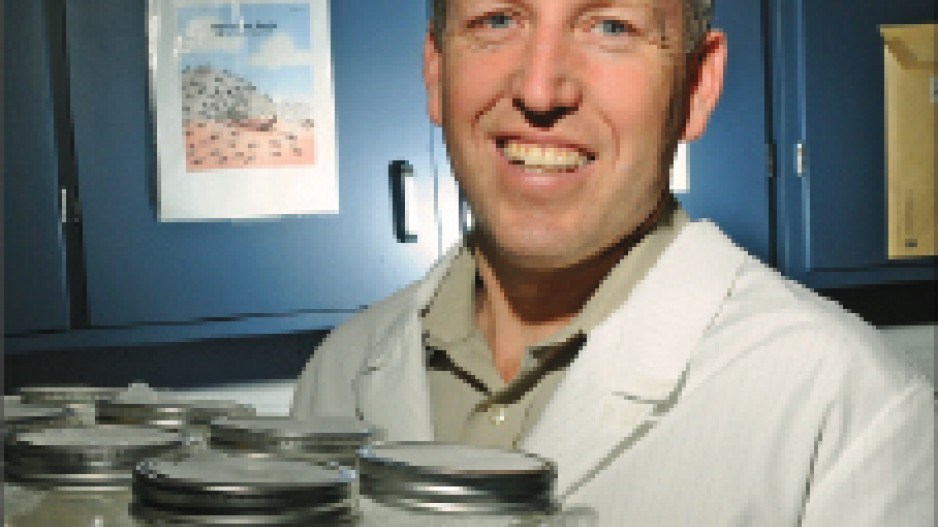Until recently, if you were unlucky enough to discover a bedbug infestation in your home, your only option was to hire an exterminator to get rid of them.
But a local biotech company now offers a second option: Sell them.
SemiosBIO is offering $1 per live bedbug. It needs the tiny bloodsuckers – 300 to 400 a week for the next few months – to experiment on.
The research company won?t be able to rid your place of bedbugs – you?ll still have to call an exterminator – but at least you will get some help with your bill, which can range from hundreds to thousands of dollars.
SemiosBIO has had to resort to posting a bedbug bounty, not because there?s any lack of them in the Lower Mainland, but because of the stigma attached.
?There?s a real shyness about it,? said Michael Gilbert, semiosBIO?s president and chief scientific officer. ?I couldn?t get anyone to give them to me.?
Bedbug infestations in the Lower Mainland have ?skyrocketed? in the last six years, said Brett Johnston, owner of Assured Environmental Solutions Inc.
Bedbugs were virtually eradicated in North America the 1940s, thanks to DDT.
They have been making a comeback since the 1990s, because of bans on DDT and other pesticides, resistance to the pesticides still in use and increased international travel.
Because bedbugs are not considered a vector for disease, the BC Centre for Disease Control does not track local infestations.
But exterminators like Johnston say bedbugs are now a big part of their business.
He has been in the pest-control business for 20 years.
Ten years ago, bedbugs accounted for about 1% of his business – now they account for 40%. He created whole new division – Assured Thermal Solutions – just to deal with them.
?Ten years ago I never would have created a division devoted to one bug,? he said.
Nor does Johnston expect the bedbug problem in North America to improve, because his arsenal of pesticides continues to shrink and become less effective.
He therefore thinks semiosBIO may be onto something.
?Wouldn?t it be great to know that the hotel you?re staying at is doing something preventive?? Johnston said.
Bedbugs are notoriously hard to get rid of. And while they tend to flourish in homeless shelters, international travel can just as easily spread them to five-star hotels and million-dollar homes.
Johnston said there are still some pesticides that can be used, starting as low as $250 per treatment. But that option can often require more than one treatment.
Extreme heat or cold is more effective, but is also more expensive. Johnston?s company offers heat treatments that cost about $1,200 for a one-bedroom apartment.
The process semiosBIO is developing can?t rid a home of bedbugs once there is an infestation, but Gilbert believes it will prove effective in preventing infestations.
The company has been collaborating with the department of food and land sciences at the University of British Columbia to manufacture pheromones that can control a range of insect behaviour.
Two main areas of focus are bedbugs and the coddling moth, which infects apple orchards.
Pheromones are molecules that insects secrete to communicate with each other.
In the case of bedbugs, repellent pheromones push the bugs out of one area (a sofa, bed, clothing, etc.), while attractant pheromones draw them into a trap, similar to an ant trap.
Because semiosBIO?s chemicals are considered a non-toxic ?biopesticide,? Gilbert believes they will be fast-tracked for approval by American and Canadian regulators and will be embraced by the hotel and travel industry.
?We think the travel industry is going to be our first market, and our biggest one,? Gilbert said.
?We?re going to have a product that you can put in your suitcase before you go on a trip that will prevent bedbugs from coming into your suitcase and preventing you from either transferring bedbugs from one hotel to the next, or bringing it home.
?We anticipate having a product ready for registration within the next year.?
Founded a year and a half ago, semiosBIO has thus far raised $215,000 from angel investors and $300,000 in non-dilutive government grants.
The company is also planning a $1.5 million series A round of investment. ?




